Nepal is seeing mass unrest over a controversial bill that seeks to nationalise private and public trusts meant for running cultural and temple affairs, but which opponents say could harm the country's social and religious traditions.
The country's ethnic Newar community - inhabitants of the Kathmandu valley and nearby areas - are at the forefront of protests against the bill to regulate such trusts, known locally as "guthis".
The government says the Guthi Bill is simply aimed at modernising and regulating the trusts better, but in view of the protests, it has withdrawn the bill from parliament for the time being.
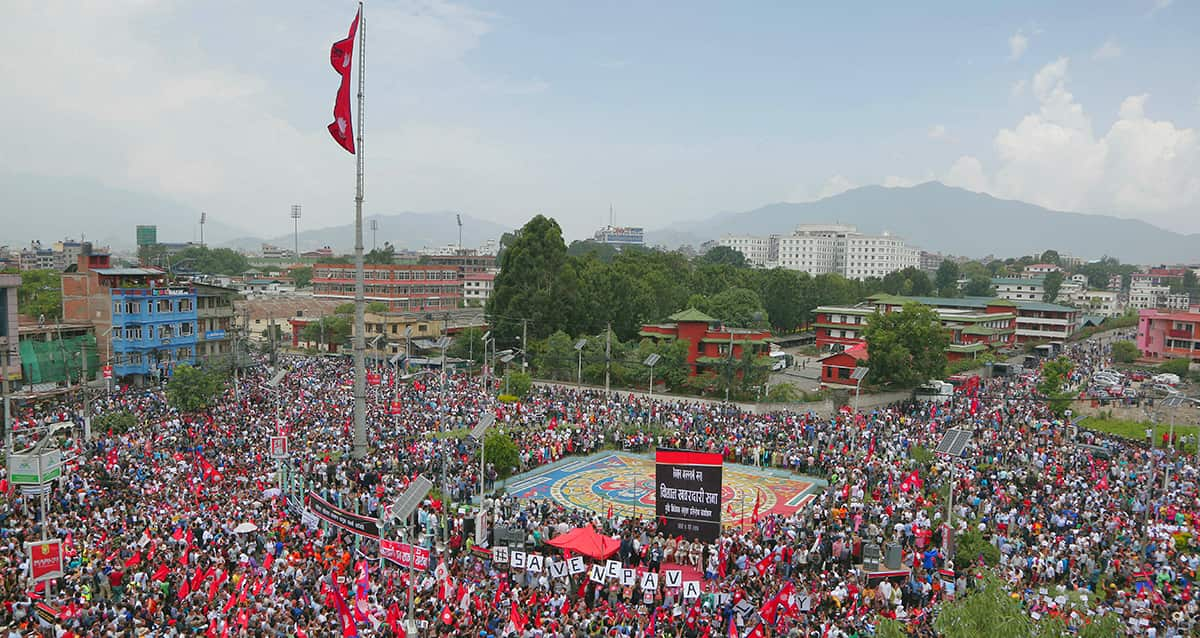
However, the demonstrations have been refusing to die down as the protesters want the bill to be scrapped completely.
Australian community reaction
Guthi Australia, a community organisation of Newari people of Nepal in Australia, says, "Guthis are an invaluable resource of not only the Newar community but all Nepali people."
Shiva Shrestha, President of Guthi Australia told SBS Nepali that the government of Nepal should establish a working committee of historians and qualified academics to work with local communities and engage a comprehensive study of Guthis.
What are Guthis?
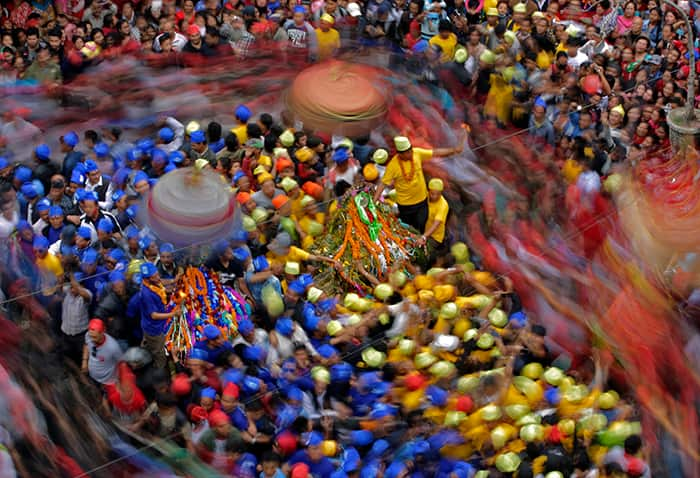
The word "guthi" is derived from the Sanskrit "gosthi", which means a congregation.
In Nepal, a guthi is a traditional trust based on kinship, caste or landholdings, and has been a part of the social structure within the Newar community.
Supporters of the social institution say it has existed since the 5th century and has served as a common trust looking after cultivated landholdings or religious sites in addition to preserving traditional religious and cultural traditions.
Oxford academic David Gellner has identified six types of guthis in Nepal.
Such trusts have traditionally conducted religious public services and performed social roles from the income they receive from land holdings.
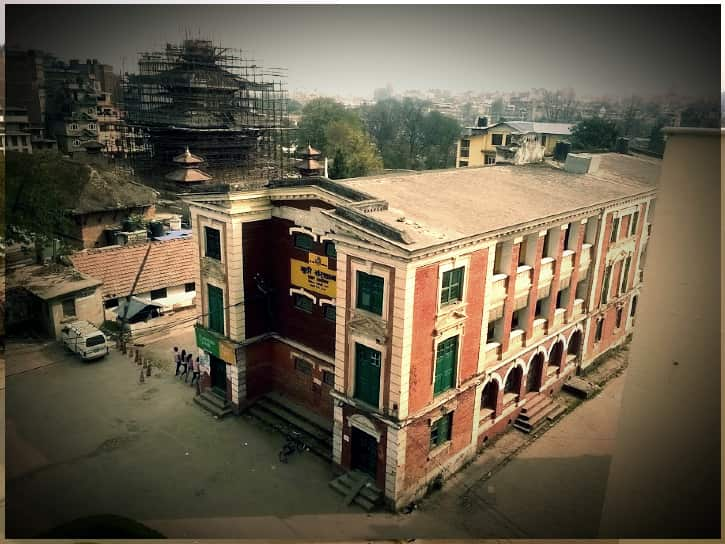
In 1964, the government set up a cooperative organisation called the Guthi Sansthan, which was created to oversee all guthis and collect revenue by leasing land to individuals and companies.
Reports say there are around 2,335 guthis under the Guthi Sansthan, which are largely controlled by the Newar community, even though today many guthis are inactive and retain a symbolic status.
But unlike their organisation under the Guthi Sansthan, the latest bill goes much further.
What does the Bill propose?
The bill seeks to nationalise Guthi trusts, consolidate all previous laws and amendments related to Guthis, and eliminate existing shareholders in the trusts - leading its critics to say it will abolish centuries-old religious and cultural traditions.
Padma Kumari Aryal, Nepal's minister of land management, cooperatives and poverty, proposed the bill in parliament on 20 May, but following the large-scale protests, the government withdrew it on 18 June in order to consider it further.
If passed in its current form, the bill would create a powerful government-controlled authority to regulate guthis, replacing the existing Guthi Sansthan.
The government also says it would gather guthi lands and redistribute them among the landless, including by providing ownership rights to those who earlier only held tenancy rights for cultivation.

But the protesters see this as threatening an encroachment on heritage properties, and further say that the bill disregards the fact that families had donated many land holdings within guthis to preserve their culture.
They maintain that the bill will breach the constitutionally guaranteed civil liberty of the right to property.
Critics add that the bill also infringes upon Article 26 (2) of the constitution, which says that every religious denomination has the right to operate and protect its religious sites and religious guthi.
Severe opposition
The protests have been ongoing since 9 June, and members of around 80 Guthis have held rallies in major cities.
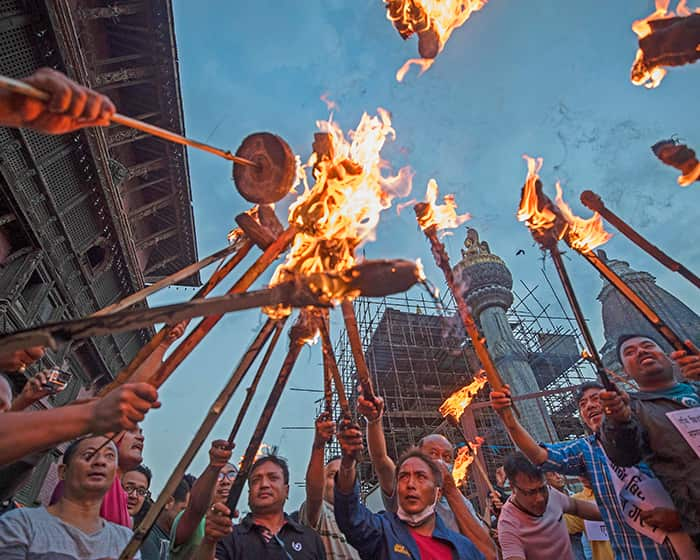
Thousands of people led torch-lit rallies, warned that they would shut down the Kathmandu valley and raised anti-government slogans demanding the withdrawal of the bill. Police suppressed the protests on 9 June with batons and water cannons.
The trustees say the bill was proposed without any consultations with stakeholders.
"We are not against formulating a strong law to curb anomalies in the sector, neither are we against the formation of a Guthi Authority", Ganapati Lal Shrestha, coordinator of a body called the National Identity Protection Joint Struggle Committee which has spearheaded the protests, was quoted as saying by local newspaper The Himalayan Times on 11 June.
But he added that "the existing bill does not address actual problems faced by guthis".
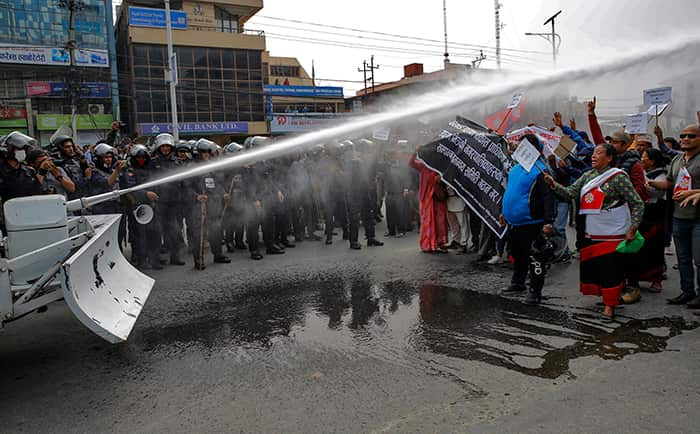
The protesters also say that rather than help the landless, the bill would instead provide an advantage to the country's land mafia.
Further, the protests have acquired a political dimension, with the opposition Nepali Congress party adding its voice to the criticism of the bill.
The party says the bill is "unnecessary" and that the suppression of the protests by the government was a "mockery of democracy".
What next?
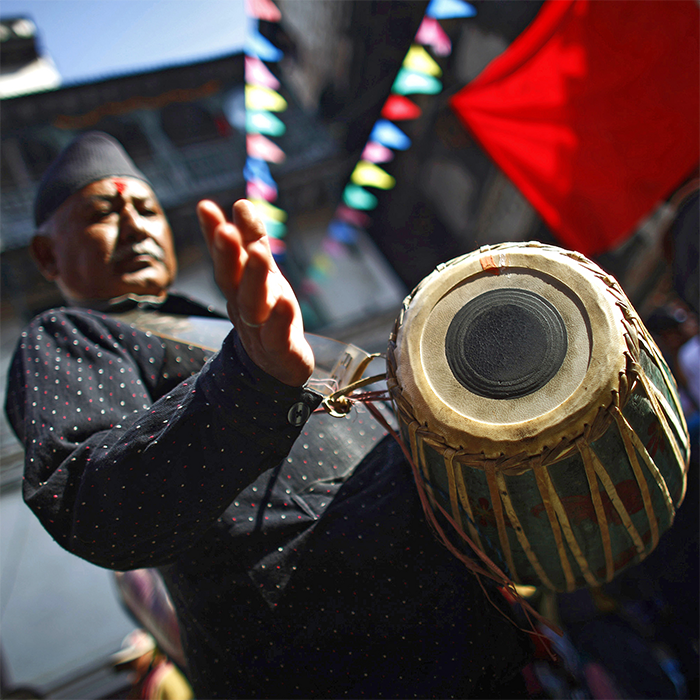
The unrest stirred up by the bill looks set to continue as the protesters want the bill to be abandoned altogether, but the government has not committed to doing so.
Instead, the government has promised to further consider the provisions of the bill in consultation with stakeholders.
Aryal told The Kathmandu Post newspaper on 18 June that Prime Minister KP Sharma Oli had started that process.
"Today, the prime minister held discussions with the party leaders and lawmakers. He will also consult stakeholders, trustees and experts before taking an appropriate decision", Aryal said.
"The government is ready to address the concerns raised by the people", she added.
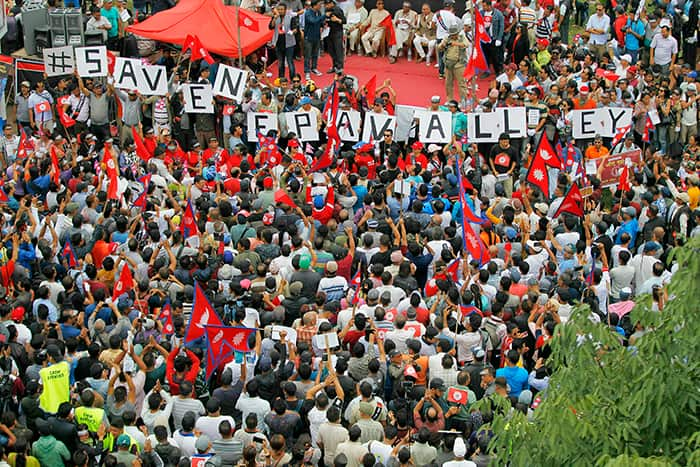
But such statements have not appeased the protesters, and on 19 June thousands gathered at the Maitighar Mandala area in Kathmandu, demanding that the government should scrap the bill entirely instead of just amending it.
Reports say this was the most massive apolitical mass protest since 2006.
Unlike the 9 June protests, there was no police action against the protesters by the authorities on this occasion, even though heavy security arrangements had been made.
Instead, the peaceful protest was marked by a festive mood.

"The crowd of such a magnitude is not a common sight. People have come together for a cause they believe is crucial for the conservation of culture and heritage.
There is an even a music band to give that cultural touch to the demonstration", The Himalayan Times reported.
